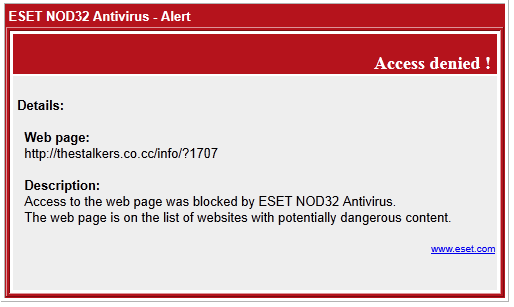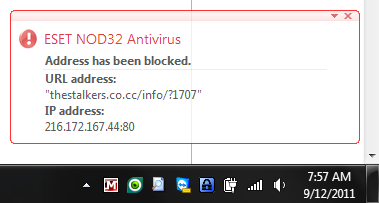
There is a *new threat floating around Facebook. It’s another one of those “See Who’s Viewing Your Profile” scams. I’m not surprised so many people are dying to see who’s viewing their profile.
It’s such a common desire that the “bad guys” know they’ll be able to fool at least one person (well, clearly more) into falling for their trick. This is akin to some scam artist trying to sell you something you don’t need. Stop and think, “wait, is this REALLY going to show me who’s viewing my profile…and is it worth it?” This is how you get viruses, get your personal information stolen, get your email hacked, etc.
This latest scam was around when MySpace was popular, so the actual tactic isn’t new. The post that’s making its way through Facebook looks like this:

Notice they’re using a URL shortening service (Bitly) to mask the true URL. They’re trying to mask something from you, which should be the first clue. If you’ll also notice this was posted via the Stalker-Viewer app. Even ESET Nod32 Antivirus knew this was a potentially unwanted app and blocked it long before Facebook even knew about this rogue app:

ESET notifies that it has blocked the URL long before the website had a chance to harm your system:

The main thing to take from this article is that threats on Facebook are-a-plenty. You want to use Facebook to help your consignment or resale store gain exposure. Make sure you sit down and discuss this with your employees though.
No matter which antivirus or security software you have, there should never be a sense of “I can click whatever I want.” Those that switched to Macs years ago because they thought they could do just that, are finding out the hard ware that malware exists on Mac OS and phishing/stealing login information can happen on ANY computing platform.
You wouldn’t send your friends into an unknown city and tell them to go walking down the back alleys in the middle of the night. The same is true with the Internet. You want to empower your employees with information so they can be informed while browsing the web. Make sure you view our additional articles in our blog that discuss other Facebook threats, ESET, Malwarebytes and NoScript.

